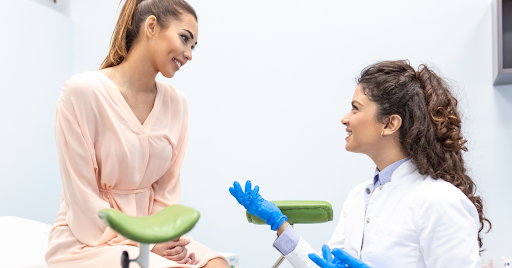Pregnancy is one of the world’s most amazing gifts. Yet, learning that your pregnancy is considered high-risk can illicit feelings of anxiety and stress. A high-risk pregnancy refers to a pregnancy in which there are increased chances of complications for the mother and/or the baby.
What You Need To Know About A High-Risk Pregnancy
It is important for expectant mothers to understand the causes of a high-risk pregnancy and implement appropriate management strategies to ensure the best possible outcome for both mother and baby. At Raleigh OB/GYN, we have compiled a comprehensive guide to provide you with the essential information you need regarding a high-risk pregnancy.
Pre-Existing Medical Conditions
Pre-existing medical conditions can increase the risk of complications during pregnancy. Some of the most common pre-existing medical conditions that can lead to a high-risk pregnancy include
- Diabetes: For women with type 1 or type 2 diabetes, high blood sugar around the time of conception increases babies’ risk of birth defects, stillbirth and preterm birth.
- Kidney disease: Women with kidney disease may experience hypertension and anemia, which affect blood flow to the fetus.
- Heart disease: Cardiovascular diseases are a leading cause of pregnancy complications in women, including an increased risk of inherited cardiac genetic disorders, fetal growth restriction, and premature delivery.
In order to decrease your risk of a high-risk pregnancy, it is essential to schedule pre-pregnancy checkups. Here, your doctor will check your overall health to make sure your body is ready to take on pregnancy.
Maternal Age
Advanced maternal age refers to the term used when a woman becomes pregnant at the age of 35 or older. This term is used because as women age, there is an increased likelihood of certain pregnancy-related complications. Advanced maternal age is often associated with higher risks, including
- Chromosomal abnormalities: Down’s syndrome, Edward’s syndrome, or Patau syndrome.
- Gestational diabetes: This condition, characterized by elevated blood sugar levels during pregnancy, can lead to macrosomia (large birth weight), preeclampsia, and an increased risk of developing type 2 diabetes later in life.
- Hypertension: Also known as high blood pressure, hypertension during pregnancy can harm a mother’s kidneys and other organs.
Although there are special considerations for women over 35 and looking to conceive, a majority of them will go on to have safe and healthy pregnancies. If you are worried about maternal age and high-risk pregnancy, contact your OB/GYN or healthcare provider.
Pregnancy Complications
Aside from pre-existing medical conditions and maternal age, which are both present before pregnancy, there are also complications that can happen as a result of pregnancy. These complications can range from mild to severe and can include:
- Preterm Birth: High-risk pregnancies are more prone to preterm labor, which increases the risk of respiratory and developmental issues in the baby.
- Preeclampsia: Preeclampsia is a condition characterized by high blood pressure and organ damage. It can lead to complications such as restricted fetal growth, premature birth, and maternal complications.
- Placental Problems: Placental abruption (premature detachment) or placenta previa (placenta covering the cervix) can result in bleeding, increased risk of infection, and potential harm to the baby.
Your OB/GYN is equipped to handle the complications that are present during a high-risk pregnancy. For more questions regarding possible pregnancy complications, contact your provider.
Fetal Complications
There are several reasons why women may experience fetal complications. Some of the most common risk factors include obesity, drugs and alcohol, advanced maternal age, or other genetic, infectious, nutritional, or environmental factors. Fetal complications can include
- Birth defects: Down syndrome, cleft lip or cleft palate, club foot, congenital heart defects (CHDs), neural tube defects (NTDs), and more.
- Infections: Certain infections, such as HIV/AIDS, hepatitis, or sexually transmitted infections, can impact the health of the mother and baby during pregnancy.
- Restricted Fetal Growth: In some high-risk pregnancies, the baby may experience restricted growth due to placental issues or maternal health conditions.
A high-risk pregnancy requires careful management to ensure the best possible outcome for both the mother and the baby. Here at Raleigh OB/GYN, we are dedicated to helping you understand every step of your unique pregnancy journey. If you have questions about a high-risk pregnancy, set up an appointment to talk to your doctor. You can schedule an appointment through our website or give us a call at (919) 876-8225.











